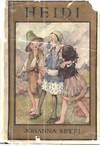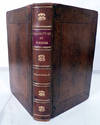
De literatorum et eorum qui magistratibus funguntur conservanda praservandáque valetudine, illorum praecipuè qui in aetate consistentiae, vel non longè ab ea sunt; compendium cùm ex probatioribus autoribus, tum ex ratione ac fideli experientia concinnatum
by Guglielmo Gratarolo
- Used
- Hardcover
- Condition
- See description
- Seller
-
Lowell, Massachusetts, United States
Payment Methods Accepted
About This Item
BOOKISH HEALTH GUIDE --- 101, [3] leaves | 16mo | A-N^8 | 112 x 75 mm --- Second edition of the Italian-born physician, alchemist, and provocateur's health guide for the bookish, intended for those engaged in intellectual labor (his title refers not only to those occupied with learned pursuits, but also public officials). The first edition appeared at Basel in 1555. Gratarolo trained in Padua and Venice, and then joined the College of Physicians in Bergamo. His education shines through here, as he cites a number of ancient authorities, Galen, Avicenna, and Aristotle among his favorites. He harbored Protestant beliefs, ran afoul of the Inquisition, and fled to Basel in 1552, where he became a productive professor. He was once described as "a plague on the faith wherever he went," antagonized Michael Servetus in Switzerland, and seemed to have few qualms about reporting owners of books banned by the Reformed church. Quite a guy. ¶ Still, as bookish laborers ourselves, we appreciate his attention to our well-being. "No one is of sound mind," his preface begins, "who denies that, with respect to the greatest good in life, the health of the body is less important than the health of the mind" (fol. 2r: Nemo est mentis compos, qui post animae sanitatem, corporis valetudinem, maximum in hac vita bonu[m] esse neget). His is only the fourth work of its kind, according to Emmanuelle Chapron, and it was followed by dozens of similar treatises through the 18th century. The ground was first trod by Marsilio Ficino in his 1489 De cura valetudinis eorum qui incumbunt studio litterarum. Gratarolo's seven-page index provides a useful outline of his coverage: the effects of vinegar, air, almonds, eel, anise, and parsley. Thoughts on softening the stool (alvus quibus rebus emollienda), the benefits of summer, and eating asparagus before other food. And these are just some of the A's. ¶ As you've probably gathered already, there's much on food and diet, including wine. "Good wine, if taken in moderation…begets inspiration, and therefore much strengthens itself, and invigorates the mind" (fol. 30r: Vinum quod bonu[m] est, si moderatè sumitur…generat spiritum: ideóq[ue] & confortatipsum & animum recreat). There are several pages on sex (fol. 93v-97r: De venere). The seeds of a certain willow, for example, or of the vitex—aka the "chaste tree," long considered an anaphrodisiac—might temper your desires. "If the loins should be too cold, let them be anointed with oil of henbane or poppy, likewise the genitals," and, "Those who drink the water lily for twelve days are deprived with respect to reproduction and sex" (fol. 95v: Si lumbi…oleo and Qui Nympheam…privantur). He has a section on sleep, too, wherein he discourages midday naps (fol. 89r: meridian[m] somnu[m] evitasse). The scope of his work is truly vast, and doubtless of enduring utility to today's scholars, librarians, collectors, and booksellers. ¶ Rare in the trade. We find no other auction records for any editions. --- PROVENANCE: Bookplate of Max Cointreau (1922-2016), of the same Cointreaus who created the eponymous orange-flavored liqueur. He assembled an impressive collection of culinary and oenological books with his wife, Béatrice. --- CONDITION: Crushed red morocco of the 20th century signed by Jean-Paul Laurenchet, the spine and board edges simply tooled in blind; gilt edges; marbled endpapers. Set in italic throughout. ¶ Shaved close, grazing a few headlines near the end; first two gatherings dampstained; first and last couple of pages soiled, the title page looking the worst. --- REFERENCES: USTC 153248; A Catalogue of Printed Books in the Wellcome Historical Medical Library (1996), v. 1, p. 153, #2918; Bibliotheca Walleriana (1955), v. 1, p. 171, #3709; André L. Simon, Bibliotheca Bacchica (Holland Press, 1972), v. 2, #318 ("Gratarolus, a Bergamo physician, gives in this little treatise advice for students and magistrates regarding wines suitable and those not suitable for intellectuals") ¶ Richard Palmer, "Physicians and the Inquisition in sixteenth-century Venice," Medicine and the Reformation (Routledge, 1993), p. 118 ("In sixteenth and seventeenth century Italy, a much favoured metaphor described heresy as a plague. Heresy might be spread by personal contact. The Protestant physician Guglielmo Gratarolo was thus described in 1551 as a plague on the faith wherever he went."); Riccarda Suitner, "The good citizen and the heterodox self: turning to Protestantism and Anabaptism in 16th-century Venice," Religious Individualisation (De Gruyter, 2019), v. 1, p. 462 (brief bio of Gratarolo); Emmanuelle Chapron, "Les veilles studieuses: representations et pratiques de la lecture nocturne au XVIIIe siècle," Histoire et civilisation du livre (2011), p. 20-24 (bibliography of works on the health of the bookish)
Reviews
(Log in or Create an Account first!)
Details
- Bookseller
- Patrick Olson Rare Books
(US)
- Bookseller's Inventory #
- 00426
- Title
- De literatorum et eorum qui magistratibus funguntur conservanda praservandáque valetudine, illorum praecipuè qui in aetate consistentiae, vel non longè ab ea sunt; compendium cùm ex probatioribus autoribus, tum ex ratione ac fideli experientia concinnatum
- Author
- Guglielmo Gratarolo
- Book Condition
- Used
- Quantity Available
- 1
- Edition
- Second
- Binding
- Hardcover
- Publisher
- Fédéric Morel
- Place of Publication
- Paris
- Date Published
- 1562
- Weight
- 0.00 lbs
Terms of Sale
Patrick Olson Rare Books
We ship UPS or FedEx standard ground to the US and Canada. Default shipping method to other countries will be USPS Priority Mail International (7-11 business days) or USPS Priority Mail Express International (5-8 business days). All shipments are insured and include tracking information. We accept returns, for any reason, within 30 days of receipt. If your item was misdescribed, or if your return is otherwise due to our error, we will also cover the cost of return shipping. After 30 days, returns will be at our discretion. In all cases, returned books must be undamaged.
About the Seller
Patrick Olson Rare Books
Biblio member since 2019
Lowell, Massachusetts
About Patrick Olson Rare Books
We specialize in books from the hand-press period -- those days when Western books were printed and bound entirely by hand. While open to debate, we take this period to begin with Gutenberg (ca. 1454) and end around 1830. We offer a rotating selection of books that we hope you find interesting, important, or otherwise worthy of your consideration.
Glossary
Some terminology that may be used in this description includes:
- Edges
- The collective of the top, fore and bottom edges of the text block of the book, being that part of the edges of the pages of a...
- Soiled
- Generally refers to minor discoloration or staining.
- Bookplate
- Highly sought after by some collectors, a book plate is an inscribed or decorative device that identifies the owner, or former...
- Gatherings
- A term used in bookbinding, where a gathering of sheets is folded at the middle, then bound into the binding together. The...
- Spine
- The outer portion of a book which covers the actual binding. The spine usually faces outward when a book is placed on a shelf....
- Leaves
- Very generally, "leaves" refers to the pages of a book, as in the common phrase, "loose-leaf pages." A leaf is a single sheet...
- First Edition
- In book collecting, the first edition is the earliest published form of a book. A book may have more than one first edition in...
- Morocco
- Morocco is a style of leather book binding that is usually made with goatskin, as it is durable and easy to dye. (see also...
- Title Page
- A page at the front of a book which may contain the title of the book, any subtitles, the authors, contributors, editors, the...
- Gilt
- The decorative application of gold or gold coloring to a portion of a book on the spine, edges of the text block, or an inlay in...






